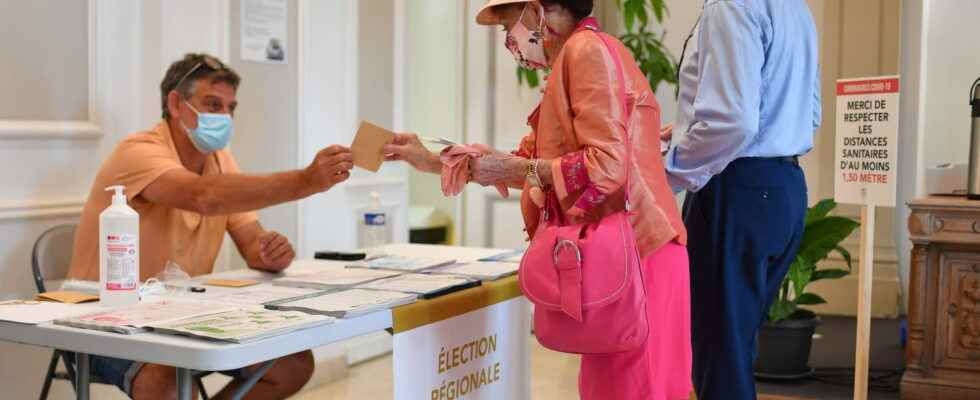VOTE PLACE. Sunday April 10, 2022, the French are called upon to elect the future President of the Republic and must, for this, go to the polling stations. How to find his? What are the opening hours? What should be presented? Practical information for voting in the presidential election.
One year after the last call to the polls, the French are again invited to go to the polling stations, Sunday April 10, 2022. This time to vote on the occasion of the most important ballot: that of the presidential election. There are tens of thousands of places to slip your candidate’s ballot into a ballot box all over France : each municipality has at least one polling station. In mainland France, in the DROM-COM (ex DOM-TOM) and even in foreign countries, all voters will be able to move to designate the President of the Republic for the next five years. However, it is not possible to present oneself anywhere and anyhow. So, how do you know your polling station? What are the opening hours? Are there papers to present to be able to vote? How is it organised? Lighting.
Between those in France (all territories combined) and those open abroad, approximately 70,000 polling stations will be open for the presidential election. Even if the registration on the electoral lists is validated, you have to go and vote in a very specific office and not anywhere. Indeed, several offices are open in the municipalities to bring together voters residing in the same geographical area. Each polling station generally does not exceed 1,000 voters. Not sure where yours is? Do not panic. The number and address is written on your electoral card, inside, at the top.
What are the opening hours of the polling stations?
For the 2022 presidential election, as for all other elections, it is possible to go and vote from 8 a.m. In metropolitan France, all polling stations open at the same time on Sunday morning. On the other hand, in certain overseas territories, voters are called to the polls earlier on Saturdays from 8 a.m. These are those registered in Guadeloupe, Guyana, Martinique, Saint-Barthélemy, Saint-Martin, Saint-Pierre-et-Miquelon and French Polynesia. The same is also true for French nationals living abroad registered on the American continent.
What is the closing time of the polling stations?
Not all polling stations close at the same time on election day. Differences exist in the big cities, on prefectural order. In the vast majority of cities, polling stations close at 7 p.m. on Sundays. However, the metropolises play the extensions until 8 p.m., such as in Paris, Lille, Bordeaux, Marseille, Toulouse, Nantes or Nice. A differentiation made due to a larger number of voters in these territories. The same is true for the voters of Guadeloupe, Guyana, Martinique, Saint-Barthélemy, Saint-Martin, Saint-Pierre-et-Miquelon and French Polynesia, summoned from Saturday. The ballot will close at 7 p.m. local time, although the Minister of Foreign Affairs may postpone the closing time in certain territories to 8 p.m. maximum.
What documents do I need to present in order to vote?
Before being able to slip a ballot into the ballot box, it is necessary, in most municipalities, to have to prove one’s identity to those responsible for the polling stations. However, presenting your electoral card is not obligatory. An identity document may be sufficient, such as his identity card, his passport, his vital card with photograph, his disability card or his driving license. It should also be noted that in towns with less than 1,000 inhabitants, it is however not compulsory to present any identity document in order to be able to vote. “But in case of doubt, the president of the polling station can ask you to prove your identity by any means”, specifies the administration.
Do you have to wear a mask to vote?
The last elections organized in France, whether municipal or departmental and regional, had been marked by the implementation of a strict health protocol with respect for physical distancing, hand washing or even wearing the mask. This time, for the 2022 presidential election, none of these rules are in effect. For example, wearing a mask is not compulsory in polling stations. However, everyone is obviously free to wear one or not.
